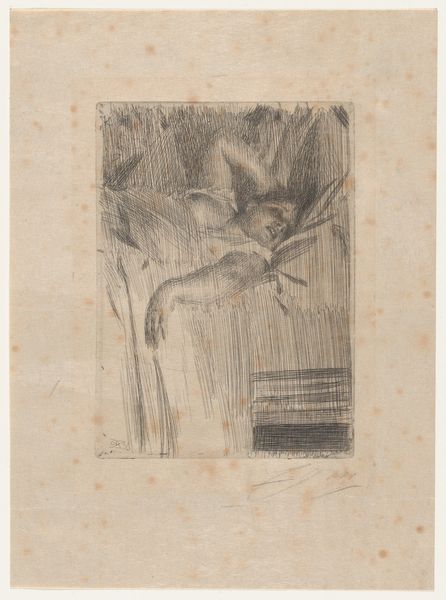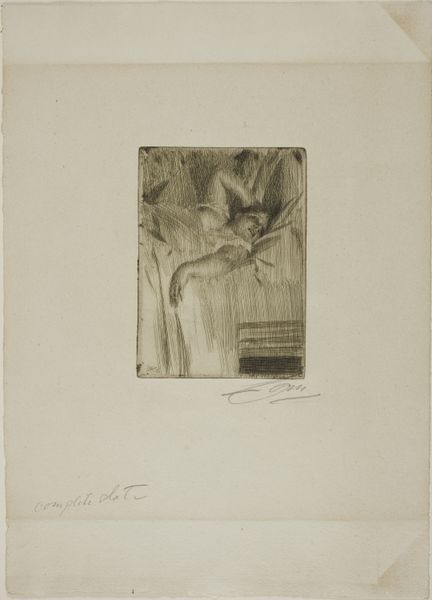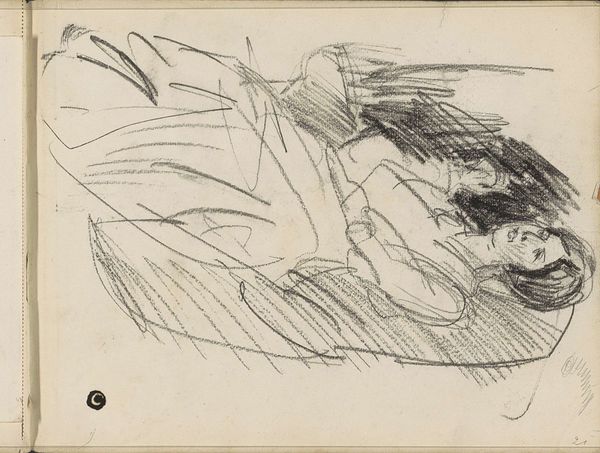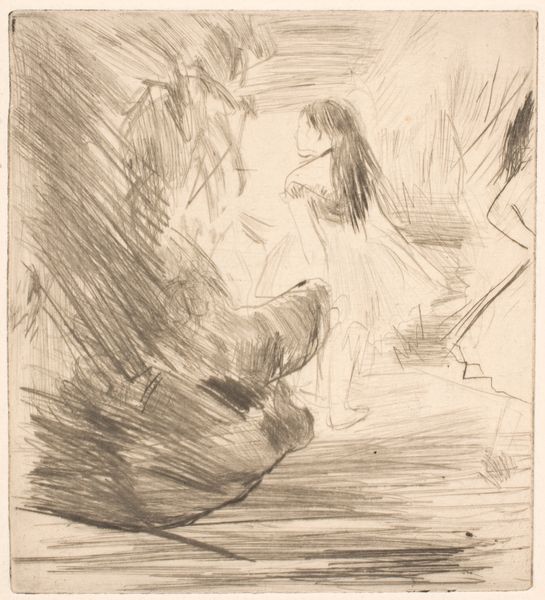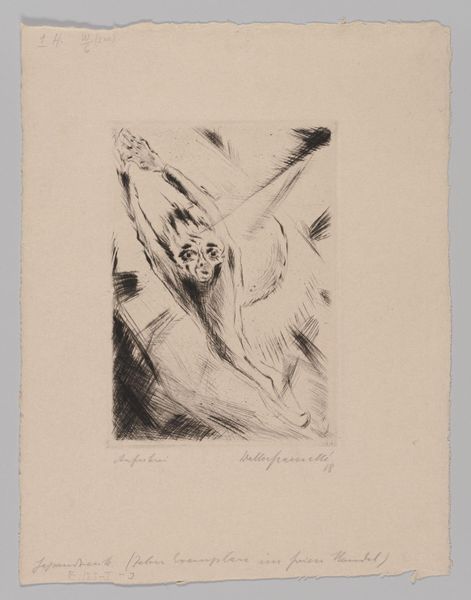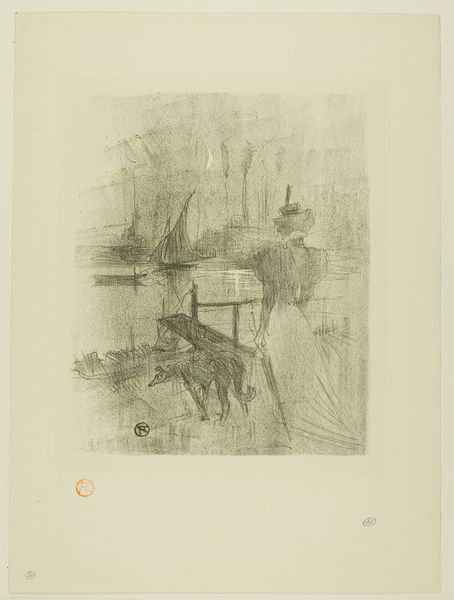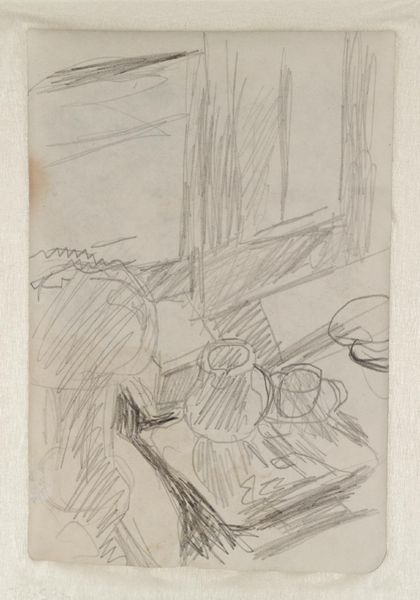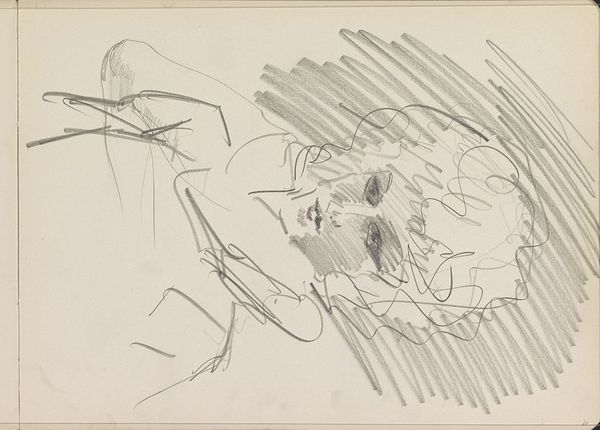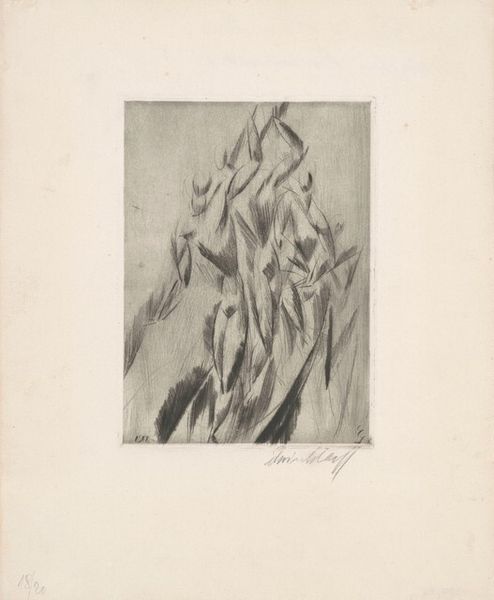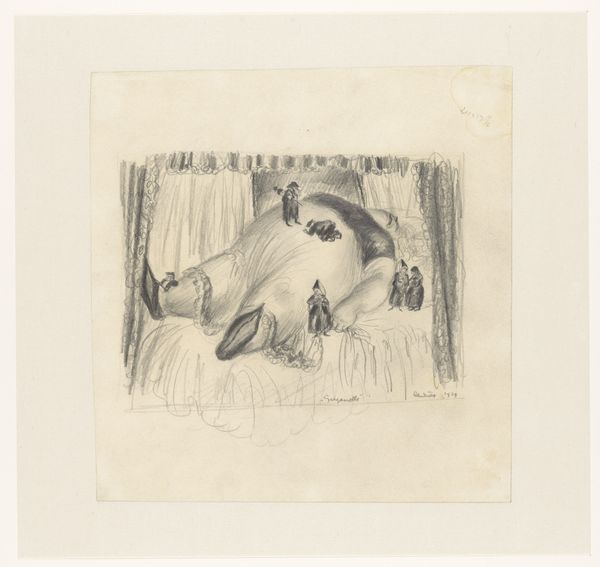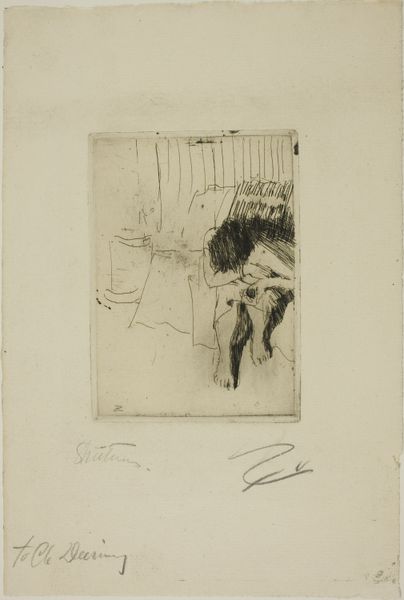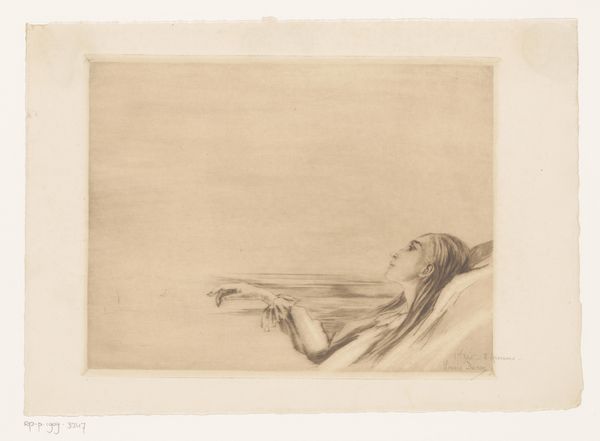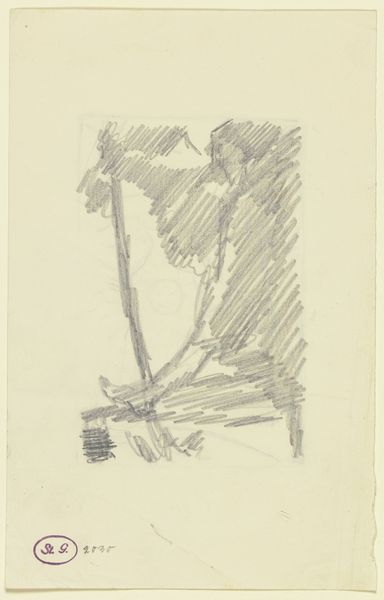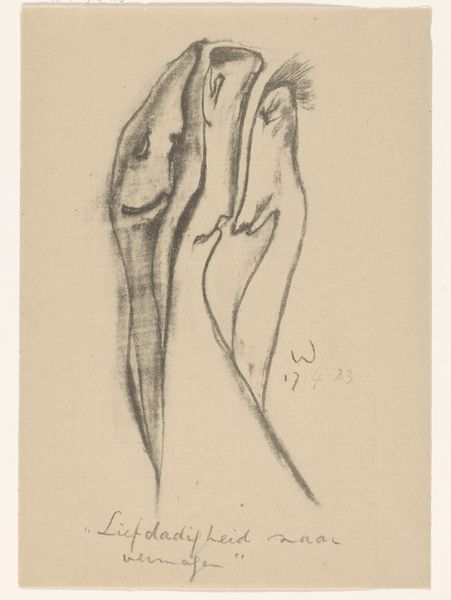
Dimensions: 137 × 100 mm (image/plate); 308 × 219 mm (sheet)
Copyright: Public Domain
Curator: Here we have "Le Réveil," or "The Awakening," an etching by Anders Zorn, created in 1891. It's currently housed here at the Art Institute of Chicago. Editor: The first thing that strikes me is the fragility, the vulnerability of the subject. It's like capturing a fleeting moment between sleep and consciousness. The delicate lines enhance that sense of transience. Curator: Zorn was indeed fascinated by capturing the intimacy of daily life. We see the reclining figure here, a nude, rendered in a flurry of etched lines. Given the context of 19th-century art and the male gaze, how might we understand Zorn’s representation of the female form in this print? Editor: It's definitely a charged topic. Is it exploitative? Maybe. But I also see a certain… tenderness? There's a quietness about the pose, an unposed quality, that sets it apart from the more theatrical nudes we often see. Plus, there's an androgynous quality to the figure. Curator: The interplay of light and shadow, achieved through the etching technique, adds depth and texture to the work, don't you think? The figure emerges from a dark background, emphasizing their form and the softness of the bedding. Also the direct address between figure and viewer cannot be discounted, even within the traditional framework of 'nude' portraiture. Editor: Absolutely. The way the light catches on her arm, the subtle curve of her back… it's gorgeous. It makes me think about my own sleep-fogged mornings, that hazy transition into wakefulness. It makes this artwork very immediate. Curator: It's interesting how Zorn captures this tension between public and private. Etchings like these were often made with an audience in mind, distributed and collected, so even the most intimate scenes enter the public sphere. Editor: That tension is what makes it captivating. The title "Le Réveil" – "The Awakening" – makes me consider what other sorts of awakenings Zorn was pointing to? The individual awakening, but maybe also social or intellectual? A sense of impending change and discovery feels inherent to this artwork. Curator: Very astute. "Le Réveil," through its technical mastery and thoughtful composition, invites us to consider the complex dynamics of intimacy, representation, and the subtle, powerful moments that define the human experience. Editor: Yeah, it definitely gives you something to mull over, doesn't it? Makes me want to grab another coffee and ponder the mysteries of being alive.
Comments
No comments
Be the first to comment and join the conversation on the ultimate creative platform.
